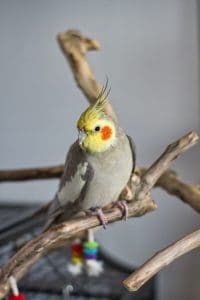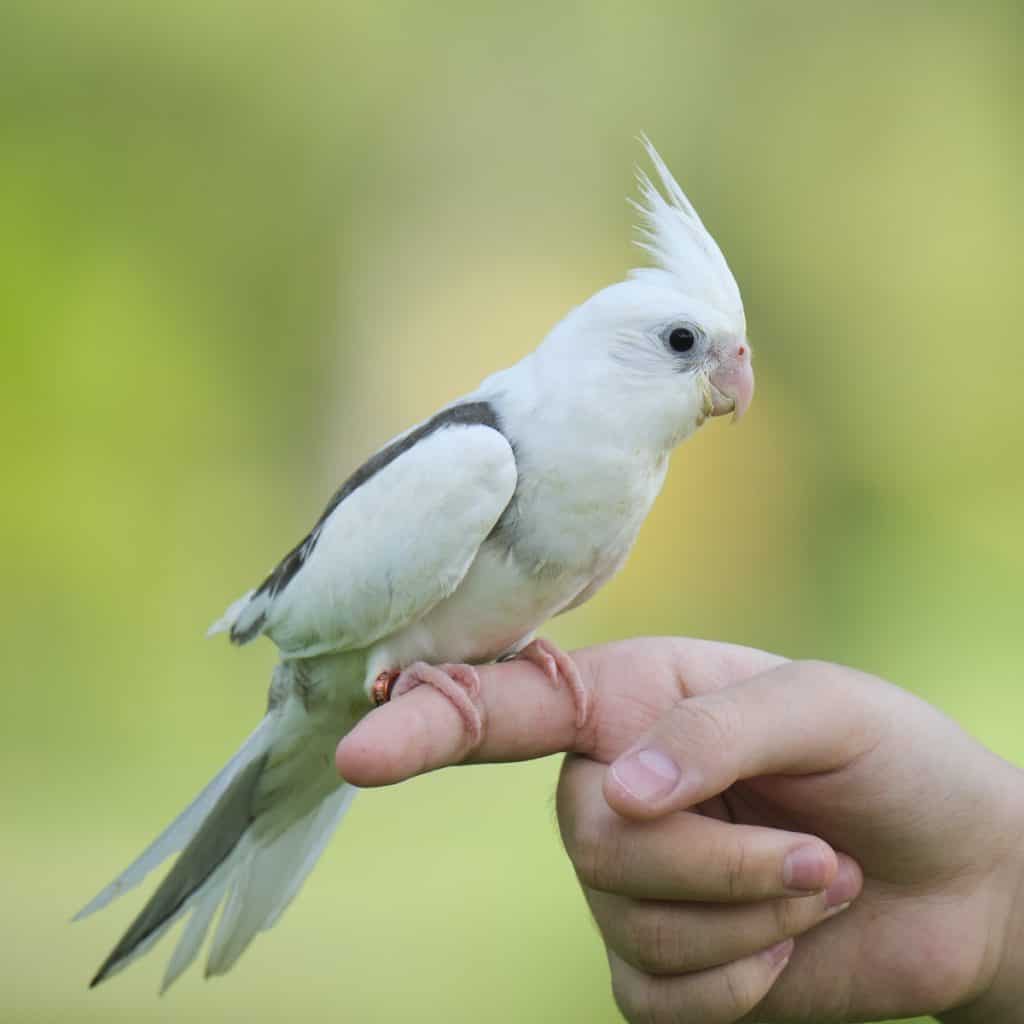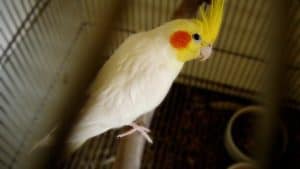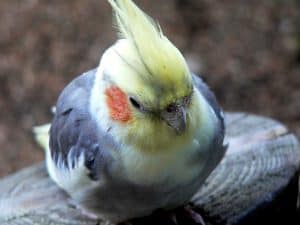As a cockatiel owner, you may have noticed that your pet bird’s feet sometimes feel oddly warm. You might be questioning yourself – why are my cockatiels feet warm? This can be alarming to pet owners, especially if you’re unfamiliar with the normal body temperature and behavior of cockatiels.
In this article, we will explore the reasons behind your cockatiel’s warm feet and discuss what you can do to ensure your pet’s health and well-being.

Body Temperature Regulation in Cockatiels
Cockatiels, like all birds, have a higher body temperature than the average adult human. Their internal temperature typically ranges from 102°F to 104°F (39°C to 40°C). This is because birds have a higher metabolic rate, which means they require more energy to maintain their body functions.
One of the ways birds lose heat and maintain their body temperature is through their feet. Unlike humans and other mammals, birds don’t have sweat glands to help them release excess body heat. Instead, they rely on their feet to dissipate heat when their body temperature rises.
How Cockatiel Feet Help with Body Temperature Regulation?
Cockatiel feet have a large surface area and are mostly devoid of feathers, making them an ideal location for heat exchange with the surrounding environment. When a cockatiel’s body temperature rises, blood vessels in their feet expand, allowing more blood to flow through them. As blood circulates through the feet, it loses heat to the cooler air outside, helping to regulate the bird’s internal temperature.
Factors That Can Affect Your Cockatiel’s Feet Temperature
There are several factors that can cause your cockatiel’s feet to feel warmer than usual:
1. Environment: If your cockatiel is exposed to direct sunlight or a warm environment, their body temperature may increase, causing its feet to feel warmer.
2. Physical activity: Hyperactive birds or those engaged in physical activity may experience a temporary increase in body temperature, which can lead to warmer feet.
3. Digestive system: Birds generate heat as they digest food. If your cockatiel has recently eaten, its body temperature may be slightly elevated, making its feet feel warmer.
4. Cold air: If your cockatiel is exposed to cold air, its body may respond by increasing blood flow to its feet to help maintain its overall body temperature.
When to Be Concerned About Your Cockatiel’s Warm Feet?

In most cases, your cockatiel’s warm feet are a normal part of their body temperature regulation process. However, there are some instances when warm feet can indicate an underlying health issue.
Signs of a Sick Bird
If your cockatiel appears lethargic, has difficulty breathing, or is not eating, drinking, or maintaining its normal weight, these could be signs of illness. A high body temperature, accompanied by these symptoms, may indicate an infection or other health problem that requires veterinary attention.
Kidney Infection and High Body Temperature
In some cases, a kidney infection can cause a cockatiel’s body temperature to rise. If you suspect your bird may have a kidney infection, take them to a veterinarian immediately for proper diagnosis and treatment.
Weight Gain and Warm Feet
Rapid weight gain can also lead to higher body temperatures in cockatiels. If your bird is gaining weight rapidly, consult with a veterinarian to determine the cause and develop a plan to help your cockatiel return to a healthy weight.
Tips for Keeping Your Cockatiel Cool and Comfortable
To help maintain your cockatiel’s temperature within a healthy range and minimize the risk of overheating, you can take the following steps:
1. Provide a cool environment: Ensure your bird’s cage is not in direct sunlight, and keep the room at a comfortable temperature.
2. Offer water and baths: Provide fresh water for your cockatiel to drink and bathe in, which can help them cool down and maintain a normal temperature.
3. Monitor their diet: Ensure your bird is eating a balanced diet and not overeating, as this can lead to weight gain and a higher body temperature.
4. Provide a quiet and safe place: If your cockatiel is stressed or overstimulated, they may become overheated. Offer them a quiet, safe place to retreat to and rest.
- STURDY CONSTRUCTION - Made of the highest-quality iron frame with a black powder varnish guaranteed to make this birdcage sturdy and durable, even against playful birds; With 4 caster wheels at the bottom, so you can move it anywhere you like, saving you effort
- MULTIPLE DOORWAYS - Designed with 2 doorways for your pet birds to enter and exit; The top of the cage opens up and can be propped open with a wooden crossbeam for your birds to stand on; Traditional doors are located on the side of the cage
- SLIDE-OUT TRAY - Equipped with a plastic tray at the bottom of this bird cage that can be removed for easy cleaning, so as to keep a clean and tidy environment as well as keep your pets safe
- VARIOUS WAYS TO PLAY - Includes a swing and multiple bars to stand on; Convenient doors so you can change the food without disturbing your pets; Locking joints to keep the cage secure; With little design features that stand out among the crowd
- EXTRA STORAGE SPACE - Comes with an additional mesh shelf so you can store food and toys out of the way; Provided with a wealth of accessories, including 4 Wooded perches, 4 Feeding cups, and 1 swing
Conclusion: Why Are My Cockatiels Feet Warm
Understanding why your cockatiel’s feet are warm is an essential part of maintaining their health and well-being. By monitoring your bird’s behavior, environment, and overall health, you can ensure that their warm feet are simply a normal part of their body temperature regulation process. If you notice any unusual symptoms or suspect your cockatiel may be experiencing an underlying health issue, consult with a veterinarian for guidance and treatment. By taking these steps, you can help ensure that your cockatiel enjoys a long, healthy, and happy life.





Very interesting topic, thank you for posting.Blog monry